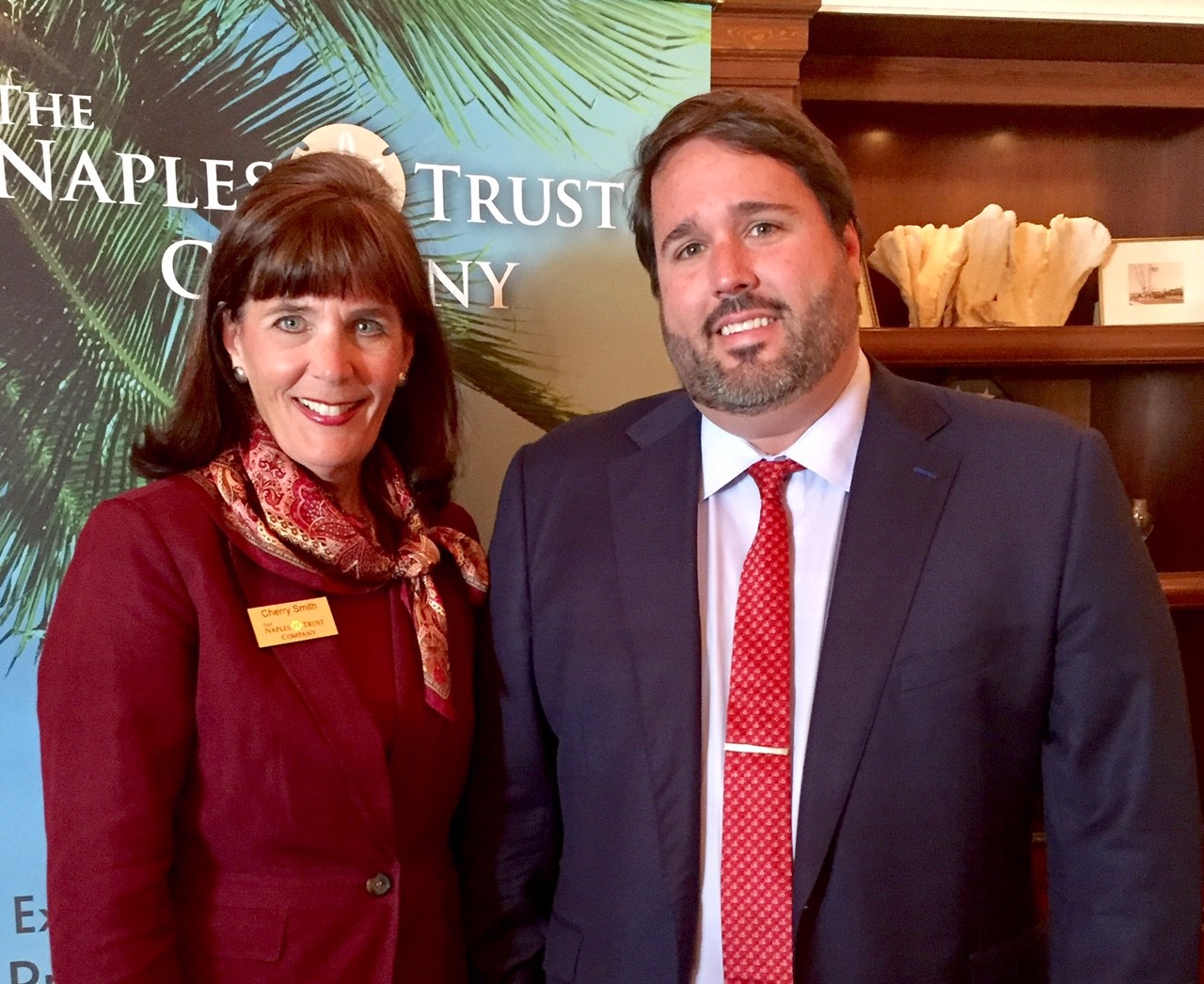Digital Dilemma – Access to Your Assets
Posted on April 25, 2017

The Naples Trust Company recently hosted a program at The Naples Yacht Club on digital assets by M. Travis Hayes, Esq., of Grant, Fridkin, Pearson, P.A. to raise clients’ awareness of how estate law and trust administration is swiftly changing in regard to the Federal and state statutes governing the access to and transfer of digital assets upon the death or incapacity of the owner. Your designated Trustee may NOT be able to access your digital assets – bank statements, tax returns, etc., if you have not properly referenced them in your documents. A digital asset is generally defined as any item or file which is created, sent, received or stored by electronic means.
Most Americans, have at least 25 user names and passwords to various devices and financial accounts and conduct the majority of their business on web sites and domains that they own and control. Digital assets now represent an increasingly larger responsibility for fiduciaries, such as personal representatives and trustees, impacting their ability to properly implement and manage estate planning.
The full scope of the problem was evidenced in 2014 when there were over 30 million Facebook accounts belonging to deceased owners that could not be accessed by fiduciaries due to the Terms of Service Agreements originally signed by the owners. The Terms of Service Agreements that you click “Agree” on when establishing a new digital asset contain privacy terms that restrict access to or changes by anyone but the owner or the service company. This was making it impossible to cancel or change an account after the owner had passed away.
In 2015, the Uniform Law Commission approved the Revised Uniform Fiduciary Access to Digital Assets Act (RUFADAA) with a general goal to create some uniformity in terminology and definitions and to facilitate fiduciary access to digital assets during incapacity and upon the death of an owner. Since then 18 states (Florida being among the first) have enacted it as law, with another 14 having introduced legislation to enact it this year.
But even with the passage of RUFADAA, it is imperative for all of us who own digital assets to update our estate plans to include granting powers to access, archive, and even delete digital assets, with the important consideration that the individual appointed as a fiduciary will have access to some of our most closely guarded and sensitive information.
The laws will continue to develop and change as rapidly as the development of new technologies. It is important to recognize that with the rise of digital assets, we must stay vigilant in how they affect our estate plan preparedness. Visit with your wealth services advisor or trust and estate attorney to manage the process.
Photo: Cherry Smith, Executive Vice President of The Naples Trust Company and M. Travis Hayes of Grant, Fridkin, Pearson, P.A. present on the changing digital world and how it affects estate planning.